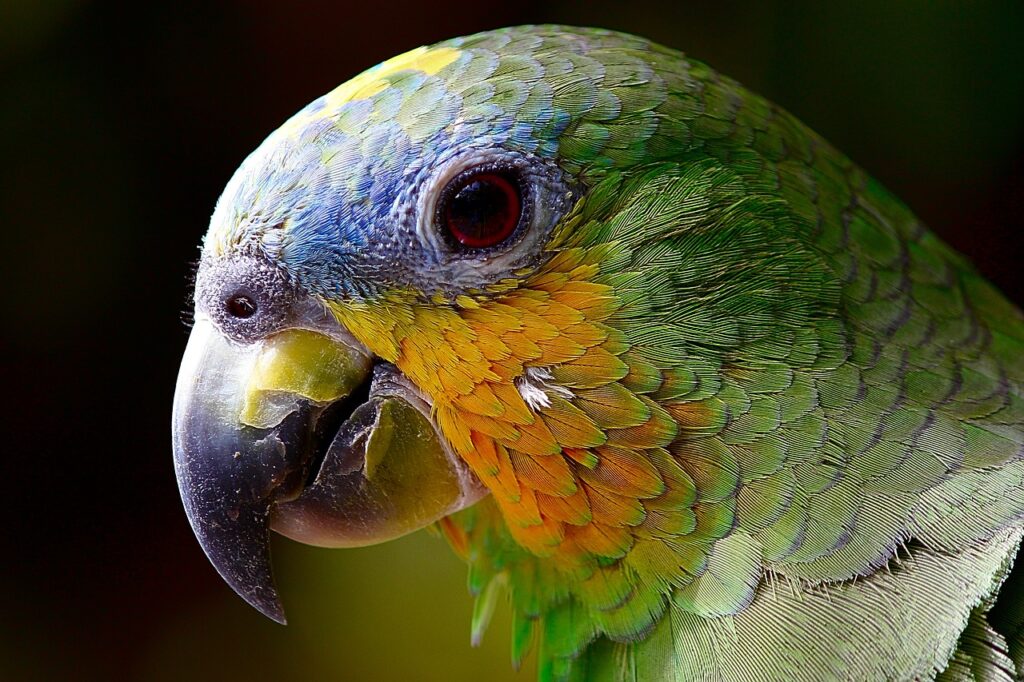Can Parrots Eat Cherries? — A Comprehensive Guide
Parrots are undoubtedly one of the most popular pet birds due to their vibrant colors, intelligence, and ability to mimic human speech. As responsible parrot owners, it is crucial to provide them with a healthy and balanced diet to ensure their well-being. One common concern among parrot owners is whether cherries are safe for these magnificent birds to consume. In this article, we will explore the suitability of cherries for parrots and provide you with all the necessary information to make an informed decision.
The Advantages of Feeding Cherries to Parrots
Cherries, when offered in moderation, can bring several health benefits to parrots. These delightful fruits are packed with vitamins, antioxidants, and essential nutrients that support the overall well-being of your feathered friend. The high vitamin C content in cherries strengthens the immune system, promoting a healthy and robust parrot. Additionally, cherries contain fiber, which aids in digestion, preventing constipation and other gastrointestinal issues. Incorporating cherries into your parrot’s diet can help enhance their overall health and vitality.
Boosting Your Parrot’s Health with Cherries
Cherries offer numerous health boosts to parrots. Here are some key advantages of feeding cherries to your beloved pet:
- Improved immune system due to the high vitamin C content
- Enhanced digestion and prevention of gastrointestinal problems thanks to the fiber
- Antioxidants in cherries promote cellular health and prevent oxidative damage
- Support for cardiovascular health due to the presence of potassium
- Promotion of strong bones and feather health through the calcium and vitamin K in cherries
Recommended Frequency and Quantity
Incorporating cherries into your parrot’s diet should be done in moderation. While cherries offer numerous health benefits, they should only constitute a small portion of your parrot’s overall diet. A recommended frequency is offering cherries a few times a week or as an occasional treat. As for the quantity, one or two cherries per serving should suffice. Remember to remove the pits and wash the cherries thoroughly before serving them to your parrot.
Potential Cautions for Feeding Cherries to Parrots
Although cherries can be a delightful addition to your parrot’s diet, certain precautions must be adhered to:
- Never offer cherries with pits, as they pose a choking hazard and contain small amounts of cyanide.
- Avoid feeding cherries with added sugars or artificial sweeteners, as they are harmful to parrots.
- Introduce cherries gradually and observe your parrot for any signs of allergies or digestive issues.
Can Other Pets Enjoy Cherries Safely?
While cherries can be a tasty and beneficial treat for parrots, it is essential to note that not all pets can enjoy them safely. Cats and dogs, for example, should not consume cherries due to potential toxicity. Always consult your veterinarian before introducing any new food to your pets, ensuring their safety and well-being.
Conclusion
In conclusion, cherries can be a safe and nutritious addition to your parrot’s diet when fed in moderation. Offering cherries as an occasional treat can provide your parrot with essential vitamins, antioxidants, and fiber. Remember to remove the pits, wash the cherries thoroughly, and introduce them gradually to prevent any adverse reactions. As responsible parrot owners, it is our duty to provide our feathered companions with a diverse and balanced diet. Cherries can contribute to their overall health, but always prioritize moderation and consult your avian veterinarian for personalized dietary recommendations. Let your parrot enjoy the occasional cherry, while ensuring their well-being with responsible feeding habits.





